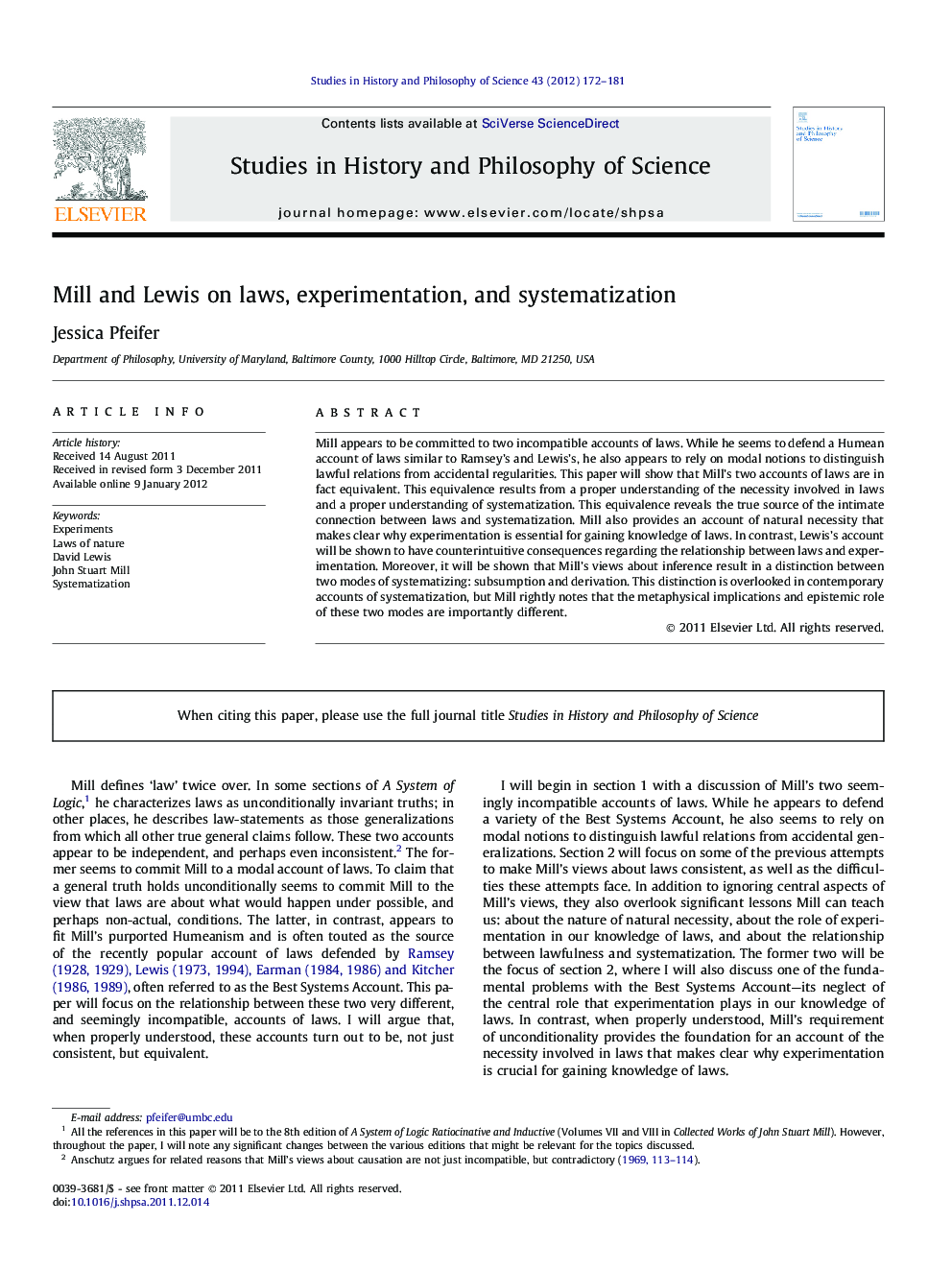| Article ID | Journal | Published Year | Pages | File Type |
|---|---|---|---|---|
| 1160357 | Studies in History and Philosophy of Science Part A | 2012 | 10 Pages |
Mill appears to be committed to two incompatible accounts of laws. While he seems to defend a Humean account of laws similar to Ramsey’s and Lewis’s, he also appears to rely on modal notions to distinguish lawful relations from accidental regularities. This paper will show that Mill’s two accounts of laws are in fact equivalent. This equivalence results from a proper understanding of the necessity involved in laws and a proper understanding of systematization. This equivalence reveals the true source of the intimate connection between laws and systematization. Mill also provides an account of natural necessity that makes clear why experimentation is essential for gaining knowledge of laws. In contrast, Lewis’s account will be shown to have counterintuitive consequences regarding the relationship between laws and experimentation. Moreover, it will be shown that Mill’s views about inference result in a distinction between two modes of systematizing: subsumption and derivation. This distinction is overlooked in contemporary accounts of systematization, but Mill rightly notes that the metaphysical implications and epistemic role of these two modes are importantly different.
